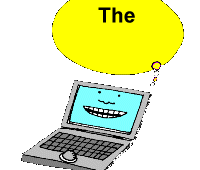The Graduate Manifesto of George Cassutto
The Challenge of Teaching
Each life on Earth is unique. The individual gathers experiences, and if
growth and positive changes in behavior result from the aggregate of those
experiences, learning has taken place. Such learning can be experiential or
academic. The bottom line is that at one point in time, the sum total of
experiences is surpassed by a greater total, thereby leading to a greater
awareness of the world around us.
There are those of us who have chosen to go into the teaching profession. The
reasons for such a choice are myriad and have an impact on the subject area and
grade level that we teach. One universal aspect of all those who teach is that
we hope to pass on what we know to others. It may be academic or empirical
knowledge that we wish to impart. Or we may be hoping to help young people
become positive, socialized contributors to society. The challenge is that the
institution we call "school" is not always set up to facilitate this
process. In fact, because the factory model of modern education involves some
sort of work ethic, the process of teaching and learning often becomes
adversarial. It seems all to often that teachers are "pulling teeth,"
trying to get students do something they would rather not be doing. Students
always seem to want to be doing something other than learning. This is because
the system has designed learning in such a way that students just don't want to
do it. This seems to be true on levels starting in pre-school, though to a
lesser degree, through post-graduate studies, though to a lesser degree. It
seems in the middle school and high school years, getting students to learn for
the sake of learning (because it is something they love and want to do for its
intrinsic rewards) is the hardest thing to achieve.
|
 It is incumbent on teachers to design lessons that are
relevant to the lives of students, even if it means making a remote connection
between some aspect of an academic subject and the contemporary existence of
young people. It is incumbent on teachers to design lessons that are
relevant to the lives of students, even if it means making a remote connection
between some aspect of an academic subject and the contemporary existence of
young people.
|
If students engaged in learning activities that were meaningful and fun, the
job of teachers would be infinitely easier, and in turn the job would become
more meaningful and fun. It is incumbent on teachers to design lessons that are
relevant to the lives of students, even if it means making a remote connection
between some aspect of an academic subject and the contemporary existence of
young people. In the words of Dr. Priscilla Norton, this is where "authentic
activities" come in to play. The interest level and motivation of high
school students who see that their learning activities have relevance in their
lives, either at that time or in the future, will go up because they see the
value in the work that they are doing. It is through these innovative activities
that teachers can have a real, positive impact on their students, arriving at
useful learning that has future application in the lives of the people they
teach. |
 To The Evolution of My Education
To The Evolution of My Education
 It is incumbent on teachers to design lessons that are
relevant to the lives of students, even if it means making a remote connection
between some aspect of an academic subject and the contemporary existence of
young people.
It is incumbent on teachers to design lessons that are
relevant to the lives of students, even if it means making a remote connection
between some aspect of an academic subject and the contemporary existence of
young people.